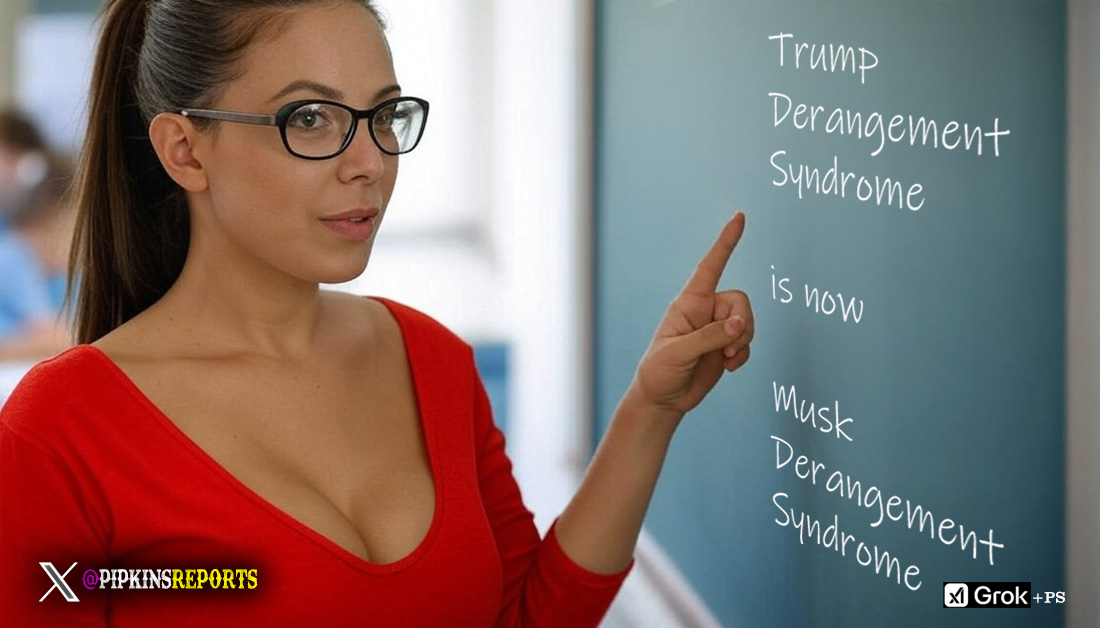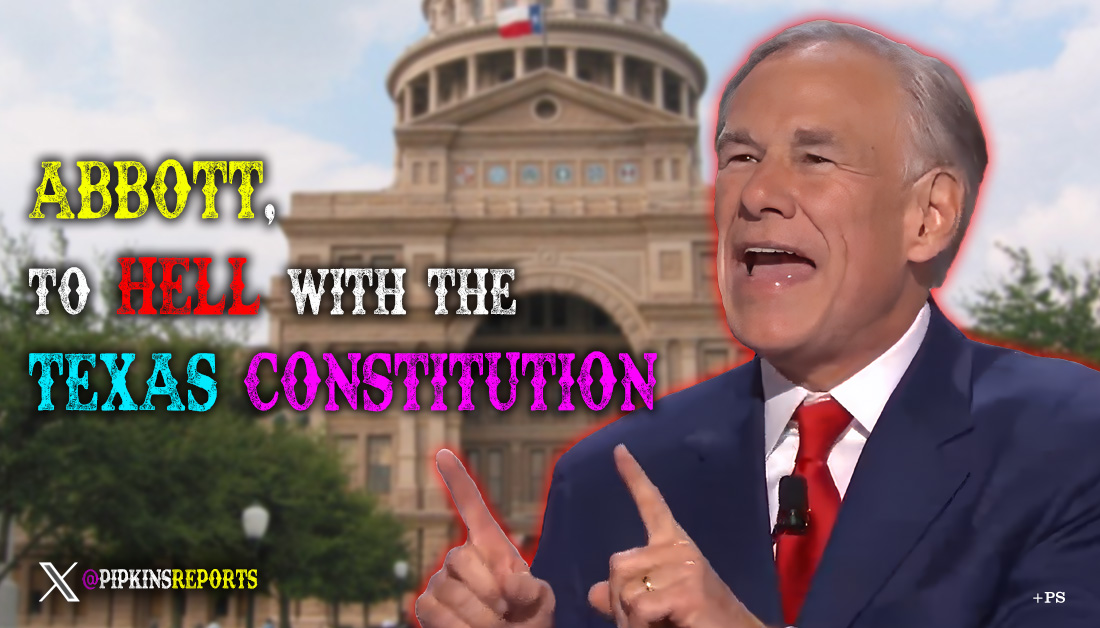Featured
From Trump Derangement to Musk Derangement: The Left’s New Obsession

When former President Donald Trump established the Department of Government Efficiency (DOGE), it was met with predictable hostility from the entrenched bureaucracy and their media allies. But with Elon Musk now leading the charge at DOGE, the Left’s irrational hatred has reached an entirely new level—Musk Derangement Syndrome (MDS) is in full swing.
Musk’s mission has been simple: investigate waste, fraud, and abuse across every department in the federal government. Starting with the U.S. Agency for International Development (USAID), his findings have sent shockwaves through Washington, exposing billions of taxpayer dollars funneled into dubious and outright absurd programs. The revelations have left Democrats and radical leftists scrambling to discredit the effort, accusing Musk of political bias and “authoritarianism.” But the numbers don’t lie.
USAID’s Unbelievable Spending Spree
The investigations into USAID, an agency that has long been criticized for operating as an unaccountable slush fund for globalist pet projects, have uncovered breathtaking levels of waste and corruption. Here are just a few examples:
- $1.5 million to “advance diversity, equity, and inclusion in Serbia’s workplaces and business communities.”
- $70,000 for production of a “DEI musical” in Ireland.
- $2.5 million for electric vehicles for Vietnam.
- $47,000 for a “transgender opera” in Colombia.
- $32,000 for a “transgender comic book” in Peru.
- $2 million for sex changes and “LGBT activism” in Guatemala.
- $6 million to fund tourism in Egypt.
- Hundreds of thousands of dollars for a non-profit linked to designated terrorist organizations—even AFTER an inspector general launched an investigation.
- Millions to EcoHealth Alliance, the same organization tied to the Wuhan lab’s dangerous research.
- Hundreds of thousands of meals that ended up in the hands of al Qaeda-affiliated fighters in Syria.
- Funding for personalized contraceptives in developing countries, raising serious ethical and legal concerns.
- Hundreds of millions funneled into “irrigation canals, farming equipment, and even fertilizer” that directly supported heroin production in Afghanistan, benefiting none other than the Taliban.
These are not minor accounting errors. These are deliberate, ideological funding choices that siphon American taxpayer dollars away from legitimate needs and into radical activism abroad. The Musk-led DOGE investigation has exposed what conservatives have long suspected: USAID is more concerned with leftist social engineering than it is with legitimate foreign aid.
The Left’s Meltdown Over Musk
Musk has never been a traditional conservative, but his embrace of free speech, transparency, and accountability has made him the prime target of the Left’s rage. They once lauded him as a genius entrepreneur when he was building Tesla and SpaceX, but the moment he began challenging their narratives—whether on government waste, censorship, or corporate ESG mandates—he became public enemy number one.
The Democrat-controlled Senate is already demanding hearings into Musk’s leadership of DOGE, accusing him of waging a “war on government” and “undermining democracy.” Progressive activists are calling for his resignation, and leftist media outlets are running hit pieces at an unprecedented pace. The same voices that screamed about Trump’s so-called authoritarianism are now hyperventilating over Musk merely exposing how their tax-and-spend schemes actually operate.
A Battle for Government Transparency
What we’re witnessing isn’t just political theater—it’s a desperate attempt by the Left to maintain control over the bloated, unaccountable bureaucracies that sustain their globalist agenda. USAID is only the beginning. Musk and his team at DOGE have already hinted that their next targets include the Department of Education (where billions are funneled into woke indoctrination programs) and the National Science Foundation (which funds dubious “social justice” research projects).
The Left’s unhinged response to Musk’s work proves just how deeply entrenched the corruption runs. If exposing billions of wasted tax dollars is seen as an existential threat, what does that say about the priorities of those in power?
The fight against government waste isn’t about partisanship—it’s about accountability. And if the Democrats and radical leftists think they can shout down the truth, they may have underestimated both Musk and the American people. The battle has just begun.
Election
Texans to Vote on 17 Constitutional Amendments, with Historic Homestead Exemption in Spotlight

AUSTIN, TX — On November 4, Texas voters will face a marathon ballot featuring 17 proposed amendments to the state’s constitution, a document that has seen over 500 revisions since 1876. Secretary of State Jane Nelson, who oversaw the ballot order draw, urged Texans to seize this chance to “make your voice heard about the governing document of our state.” From tax relief to judicial reform, these propositions reflect a conservative vision of limited government, economic liberty, and state sovereignty. But one measure, Proposition 13, stands out as a landmark effort to deliver substantial property tax relief to homeowners—a cornerstone issue for Texans grappling with rising costs in a state without an income tax.
Proposition 13: A Game-Changer for Homeowners
At the heart of this constitutional lineup is Proposition 13 (SJR 2), which would raise the homestead exemption for school district property taxes from $100,000 to $140,000, with an even higher $150,000 exemption for seniors and disabled homeowners. Paired with a tax rate compression in Senate Bill 1, this measure promises an average savings of $496.57 for homeowners, according to Sen. Paul Bettencourt (R-Houston), the bill’s author. In a unanimous vote, the Texas Senate signaled its commitment to easing the property tax burden, a perennial concern for Texans facing skyrocketing appraisals.
For many, Proposition 13 is a lifeline. Bettencourt noted that 80 to 90% of Texas seniors could pay zero school district property taxes under this plan, as would average homeowners in 49% of Texas school districts where home values fall below $140,000. This is no small feat in a state where property taxes fund much of public education. To address concerns about local revenue losses, Bettencourt emphasized that the state would reimburse school districts, ensuring they remain fully funded. “Today, the Texas Senate delivered a win for homeowners statewide,” he declared, framing the measure as a victory for taxpayers without sacrificing educational quality.
Yet, some lawmakers raised red flags during Senate debates, warning that local taxing entities—cities, counties, and special districts—might offset these savings by raising their own rates. This tension underscores a broader challenge: balancing tax relief with the fiscal needs of local governments. For constitutional conservatives, Proposition 13 embodies the principle that government should prioritize returning money to citizens, but voters must weigh whether the state’s reimbursement plan can prevent local tax hikes that could erode the promised relief.
A Broader Conservative Agenda
While Proposition 13 takes center stage, the remaining 16 amendments advance a robust conservative agenda. Proposition 2 (SJR 18) bans taxes on capital gains—realized or unrealized—protecting wealth creation from state overreach. Proposition 6 (HJR 4) shields securities transactions from occupational or transactional taxes, bolstering financial markets. Proposition 8 (HJR 2) prohibits death taxes on estates or inheritances, ensuring families keep more of their legacy.
Other tax relief measures include Proposition 5 (HJR 99), exempting animal feed held for retail from ad valorem taxes, and Proposition 9 (HJR 1), which extends similar exemptions to income-producing personal property. Proposition 7 (HJR 133) offers tax breaks for surviving spouses of veterans with presumed service-connected conditions, while Proposition 10 (SJR 84) provides temporary exemptions for homestead improvements destroyed by fire. Proposition 11 (SJR 85) further boosts exemptions for elderly and disabled homeowners, complementing Proposition 13’s focus on homestead relief.
Infrastructure and education also feature prominently. Proposition 1 (SJR 59) creates a permanent fund for the Texas State Technical College System, supporting trade programs vital to Texas’ economy. Proposition 4 (HJR 7) dedicates sales tax revenue to the Texas Water Fund, addressing water scarcity in a growing state. Proposition 14 (SJR 3) establishes a $3 billion Dementia Prevention and Research Institute, though its hefty price tag raises questions about fiscal priorities.
Safety, Sovereignty, and Civic Values
Public safety and border security are addressed in Proposition 3 (SJR 5), which mandates bail denial for certain felony offenses, and Proposition 17 (HJR 34), which offers tax exemptions for border security infrastructure in counties along the U.S.-Mexico border. Both align with conservative priorities of law and order and state sovereignty, though the latter’s vague definition of “infrastructure” warrants scrutiny.
Cultural and civic concerns shine through in Proposition 15 (SJR 34), affirming parents as the primary decision-makers for their children—a rebuke to institutional overreach in schools and healthcare. Proposition 16 (SJR 37) clarifies that only U.S. citizens may vote, reinforcing election integrity amid national debates. Proposition 12 (SJR 27) reforms the State Commission on Judicial Conduct, enhancing accountability for judicial misconduct, a move conservatives will welcome as a check on judicial power.
With early voting from October 20-31 and a registration deadline of October 6, Texans must act swiftly to study these amendments. Detailed information is available at VoteTexas.gov. Proposition 13, with its promise of historic tax relief, may dominate headlines, but the full slate demands careful consideration. Each amendment shapes the delicate balance between individual liberty and public needs, a balance constitutional conservatives hold dear.
As Texas voters head to the polls, they carry the weight of self-governance. In a state fiercely proud of its independence, this election is a chance to reaffirm principles of limited government and personal freedom—nowhere more so than in Proposition 13, which could redefine the financial burdens of homeownership for millions. The question is whether Texans will embrace this vision or demand greater clarity on its long-term impacts.
Featured
Abbott’s Veto of SB3 Saves Texas Hemp Industry, Sparks Battle Over Regulation

In a dramatic eleventh-hour move, Texas Governor Greg Abbott vetoed Senate Bill 3 (SB3) late Sunday night, June 22, 2025, sparing the state’s $8 billion hemp industry from obliteration and setting the stage for a contentious special legislative session to address the regulation of consumable hemp products. The decision, which defied the expectations of powerful allies like Lieutenant Governor Dan Patrick, has ignited a firestorm of debate, pitting free-market principles and constitutional fidelity against calls for stringent public safety measures. For Texas conservatives, Abbott’s veto represents a principled stand against heavy-handed government overreach, but it also exposes fault lines within the Republican coalition as the state grapples with the future of a burgeoning industry.
SB3, authored by Senator Charles Perry (R-Lubbock) and championed by Patrick, sought to ban all consumable hemp products containing any measurable amount of tetrahydrocannabinol (THC) or other intoxicating cannabinoids, including the popular delta-8 and delta-9 compounds. The bill’s draconian provisions—criminalizing possession as a misdemeanor and manufacturing as a felony—would have shuttered an industry that employs 53,000 Texans, generates $267 million in annual tax revenue, and supports thousands of small businesses and farmers. Its passage through the Senate (26–5) and House (87–54) reflected strong Republican support, driven by concerns over unregulated hemp products and their accessibility to minors. Yet, the bill’s blanket prohibition clashed with the federal 2018 Farm Bill, which legalizes hemp products with up to 0.3% delta-9 THC, setting the stage for Abbott’s veto.
In a four-page proclamation, Abbott delivered a constitutional rebuke to SB3, arguing that its outright ban would “not withstand valid constitutional challenges” and would create a “collision course” with federal law. Citing a 2023 federal court ruling that halted a similar ban in Arkansas, Abbott warned that SB3 would likely be enjoined, leaving Texas with no regulatory framework to protect public safety. “The result in Arkansas? Their law has sat dormant, meaningless, having no effect for nearly two years,” he wrote. Instead of prohibition, Abbott called for a regulatory approach modeled on alcohol laws, including age restrictions, mandatory testing, and local control over retail. His announcement of a special session starting July 21, 2025, to craft such a framework signals a commitment to balancing public safety with economic liberty—a hallmark of constitutional conservatism.
The veto was a triumph for the Texas Hemp Business Council, which mobilized 150,000 petition signatures and 5,000 handwritten letters to sway the governor. “Governor Abbott’s veto reinforces Texas’ reputation as a leader in business innovation and practical policymaking,” the council declared, praising his rejection of “overreach” that would have pushed consumers toward unregulated black markets. Veterans, a key constituency, also celebrated. Dave Walden, a combat veteran and Texas VFW senior vice commander, credited hemp-derived THC gummies with helping him avoid opioids since 2018. “This is about control, not public safety,” Walden said at a June press conference. “Veterans are caught in the crossfire.”
Farmers and small business owners echoed this sentiment. A sixth-generation Texan farmer warned that SB3 would “wipe out the entire hemp crop,” devastating rural economies. Candice Stinnett, a Texas Hemp Coalition board member, expressed relief, noting the industry’s willingness to embrace “tightened” regulations. On X, the hashtag #VetoSB3 trended as Texans from all walks—entrepreneurs, patients, and liberty-minded conservatives—hailed Abbott’s decision. “Texans aren’t buying it, and neither should @GregAbbott_TX,” posted the Hemp Business Council, reflecting widespread skepticism of prohibitionist rhetoric.
Yet, the veto has drawn sharp criticism from SB3’s supporters, exposing tensions within the GOP. Lieutenant Governor Patrick, visibly stung, accused Abbott of betraying the 105 Republicans who backed the bill, along with law enforcement and families affected by addiction. In a fiery X post, Patrick lamented Abbott’s “total silence” during the legislative session and announced a press conference for June 23 to rally opposition. Groups like Citizens for a Safe and Healthy Texas, backed by Houston-area mothers, argued that unregulated hemp products pose a dire threat to youth, citing cases of mental health crises linked to high-potency THC.
For constitutional conservatives, Abbott’s veto is a victory for limited government and federalism. SB3’s clash with the 2018 Farm Bill risked federal preemption, undermining Texas’ sovereignty to regulate its own markets. Moreover, its criminal penalties—jailing farmers and shop owners for federally legal products—smacked of the same overreach conservatives decry in other contexts. The Reason Foundation, a libertarian voice, had urged Abbott to reject SB3, arguing it would “dismantle” an industry while doing little to curb youth access. Regulation, not prohibition, they argued, is the answer.
Still, the veto is not the end of the story. Abbott’s call for a special session places the hemp issue squarely in the crosshairs of Texas’ political machine. The governor’s proposed regulatory framework—barring sales to minors, mandating testing, and empowering local governments—offers a path forward but faces hurdles. Patrick’s influence in the Senate and the bill’s prior legislative support suggest a fierce fight ahead. The hemp industry, while relieved, remains on edge, with stakeholders like Hayden Meek of Delta 8 Denton preparing for potential legal battles if regulation veers too restrictive.
Abbott’s decision underscores a broader truth: in Texas, the battle for liberty often hinges on resisting the temptation to over-regulate in the name of safety. As the special session looms, conservatives must hold the line, ensuring that any new framework respects the Constitution, protects economic freedom, and avoids the pitfalls of prohibition. For now, the hemp industry breathes a sigh of relief—but the fight for its future is just beginning.
Election
Abbott’s Backroom Play: How Greg Abbott Used a Legal Loophole to Install Kelly Hancock as Texas Comptroller Without Senate Confirmation

In a calculated maneuver that has sent shockwaves through grassroots conservative circles, Texas Governor Greg Abbott has bypassed the standard legislative confirmation process to install outgoing State Senator Kelly Hancock into the role of Texas Comptroller—without the public scrutiny, vetting, or constitutional confirmation typically required by law.
The move, which critics are calling a “legal sleight of hand” and a “raw power grab,” appears designed to give Hancock the advantage of incumbency ahead of the 2026 Republican primary, where he’ll face two formidable, independently-minded opponents: former State Senator Don Huffines and current Railroad Commissioner Christi Craddick.
But beyond its political implications, the scheme raises deeper questions about rule of law, the erosion of constitutional norms in Texas governance, and whether voters are being force-fed another establishment pick wrapped in a bow of bureaucratic trickery.
The Setup: Avoid the Constitution, Install a Loyalist
On June 19, Hancock formally resigned from the Texas Senate and was immediately sworn in—not as Comptroller—but as “chief clerk” of the Comptroller’s office by outgoing Comptroller Glenn Hegar. That title, while bureaucratically bland, comes with sweeping authority over the agency’s operations for the remainder of Hegar’s term, which runs through January 2027.
Hegar, who is leaving to become chancellor of the Texas A&M University System on July 1, heaped praise on Hancock and handed him the reins with the enthusiastic blessing of Abbott.
But here’s the catch: Abbott didn’t appoint Hancock as Comptroller—a move that would have triggered mandatory Senate confirmation under Texas law. Instead, Hancock’s insertion as “chief clerk” is a workaround—a newly invented interim title designed to give him all the power of the office, with none of the accountability.
The workaround skirts a 2002 legal opinion written by none other than then-Attorney General Greg Abbott himself. That opinion declared that a sitting legislator cannot be appointed to a position requiring Senate confirmation during the term for which they were elected. Hancock’s resignation was intended to dodge that prohibition, yet critics say he still falls under constitutional limits due to Texas’ “holdover” clause—a provision that allows legislators to technically retain office until a successor is qualified.
In plain terms: Hancock may not be legally out of the Senate yet, and therefore not legally eligible to hold this new office either.
The Real Goal: An Unelected Incumbency
Why the rush to appoint a placeholder Comptroller for a year and a half? The answer is pure politics: incumbency.
Abbott and his allies understand the power of incumbency in statewide races. Name recognition, official letterhead, media exposure, and the implied authority of office all combine to give Hancock a serious leg up over his grassroots challengers. By installing him now, Abbott ensures that his preferred successor runs not as a candidate—but as the sitting Comptroller.
Hancock wasted no time launching his campaign. Within hours of his swearing-in, he rolled out a slick announcement touting his legislative experience, fiscal conservatism, and support for border security. But that very record is already drawing fire from conservatives, especially his vote to impeach Attorney General Ken Paxton and his siding with Democrats to dilute a ban on taxpayer-funded lobbying.
That record hasn’t gone unnoticed by primary voters, either.
Don Huffines: “They Fear You”
Former State Senator Don Huffines didn’t mince words in his response.
“The political elite are manipulating the system to install another go-along-to-get-along lap dog as State Comptroller,” Huffines said. “They don’t just fear me—they fear you, the taxpayers.”
Huffines, who has already earned endorsements from U.S. Sen. Ted Cruz, Ron Paul, and a majority of the State Republican Executive Committee, framed the maneuver as part of a broader establishment pattern of undermining grassroots efforts and insulating power among insiders.
“They know that true transparency, the kind I’ve promised, would expose everything,” he said.
Huffines’ campaign is already tapping into the anti-establishment fervor that helped fuel Trump’s rise. He paints Hancock not as a fighter for fiscal integrity, but as a symbol of cronyism and cowardice—a man who lacked the courage to earn the job honestly and instead snuck in through the back door.
Christi Craddick: “I’ve Done the Job”
Current Railroad Commissioner Christi Craddick, a no-nonsense fiscal hawk with actual statewide executive experience, also entered the race undeterred by Hancock’s sudden rise to power.
“I’m the only candidate in this race with statewide experience and a proven record,” she said. “While others play games, I deliver results.”
Craddick has run one of the most revenue-critical agencies in Texas—the Railroad Commission—overseeing billions in oil and gas revenues that fund schools, roads, and law enforcement. She’s pledging to bring that same results-driven approach to the Comptroller’s office.
“I trust the voters to see through political gimmicks. They know what leadership looks like,” she said.
Legal Questions Linger
Beyond the optics and political fallout, constitutional questions still loom. Article XVI, Section 40 of the Texas Constitution prohibits a legislator from being appointed or employed in a civil office during their elected term. The Abbott-Hancock team contends that Hancock’s resignation makes the restriction moot.
But constitutional scholars and conservative legal minds aren’t so sure.
Because Hancock’s replacement hasn’t yet been elected in a special election, he may technically still be “holding over” his Senate seat. That would render his new role unconstitutional—even if it comes with a carefully worded job title designed to muddy the waters.
“This is a clear violation of both the spirit and the letter of the Texas Constitution,” said one former legislative attorney who asked not to be named due to potential backlash. “It’s a loophole engineered for a political ally, and it disrespects the very laws these men swore to uphold.”
Abbott’s Real Message to Texans
Governor Abbott’s rapid endorsement of Hancock—along with his backhanded swipe at Don Huffines as a “candidate who already lost to a Democrat”—reveals much about the governor’s priorities. Abbott appears less interested in an open, transparent race for the state’s chief financial officer and more focused on installing a loyalist who will support his education agenda, including school choice and other spending priorities.
The entire operation has the feel of a political chess game, with Abbott moving pieces behind the curtain to ensure control, compliance, and consolidation of power.
To many observers, the stunt feels less like governance and more like a monarchy: appointments made in private, authority granted by favor, and the people kept safely at arm’s length.
What’s at Stake in March 2026
The 2026 Republican primary for Comptroller is now shaping up to be more than just a contest for a relatively obscure financial office. It’s becoming a litmus test for whether grassroots conservatives still have a say in Texas politics—or whether power brokers like Abbott will continue to manipulate the machinery to protect their allies and sideline principled insurgents.
Texans should pay close attention. If the Comptroller’s office can be quietly handed to a hand-picked insider without constitutional confirmation or public scrutiny, what’s next? Attorney General? Land Commissioner? Lieutenant Governor?
The Hancock appointment is more than a cynical political move. It’s a bellwether. And if Texas conservatives don’t push back hard, they may wake up in a state where elections are merely formalities and public offices are auctioned behind closed doors.
This is about who runs Texas: the people, or the political class.
And in March 2026, the people will have their say—if they’re paying attention.
-

 Election1 week ago
Election1 week agoAbbott’s Backroom Play: How Greg Abbott Used a Legal Loophole to Install Kelly Hancock as Texas Comptroller Without Senate Confirmation
-

 Featured5 days ago
Featured5 days agoAbbott’s Veto of SB3 Saves Texas Hemp Industry, Sparks Battle Over Regulation
-

 Election2 days ago
Election2 days agoTexans to Vote on 17 Constitutional Amendments, with Historic Homestead Exemption in Spotlight


You must be logged in to post a comment Login